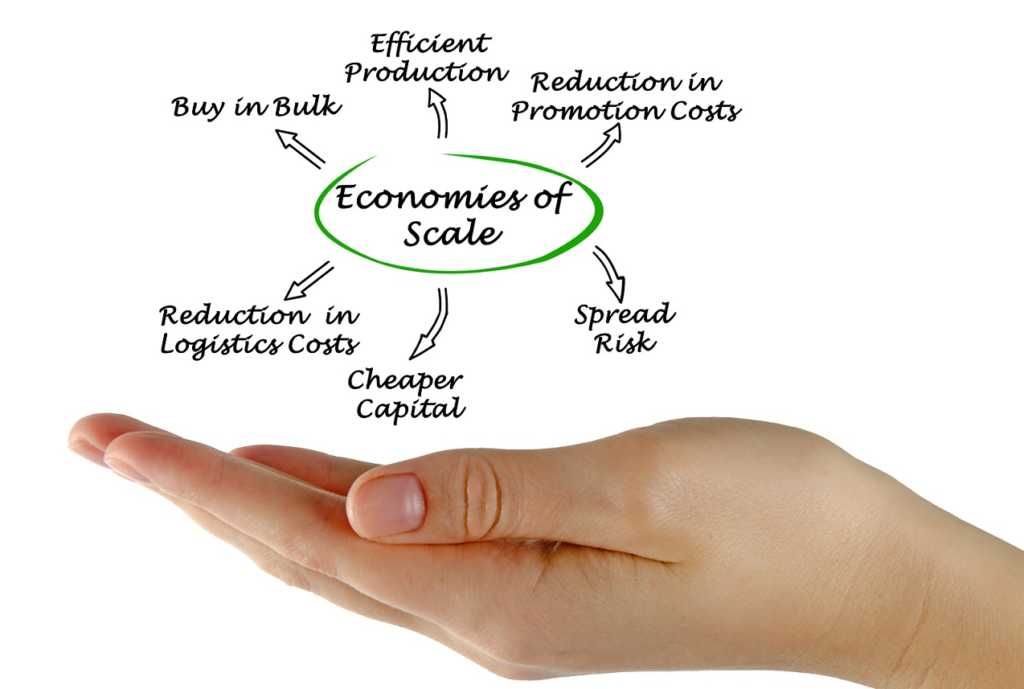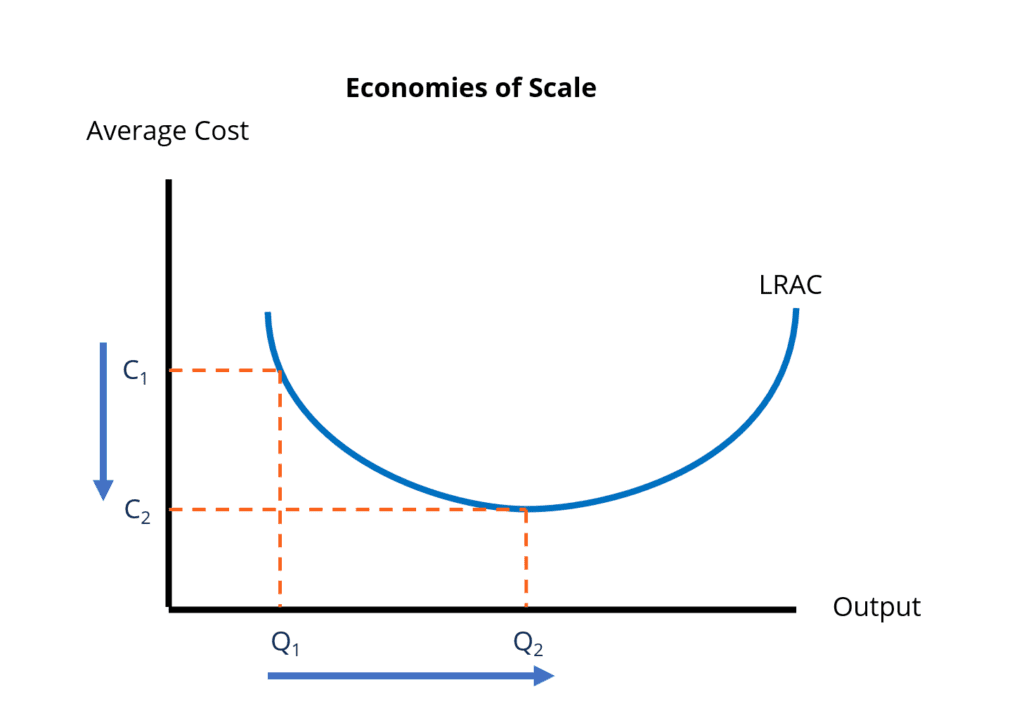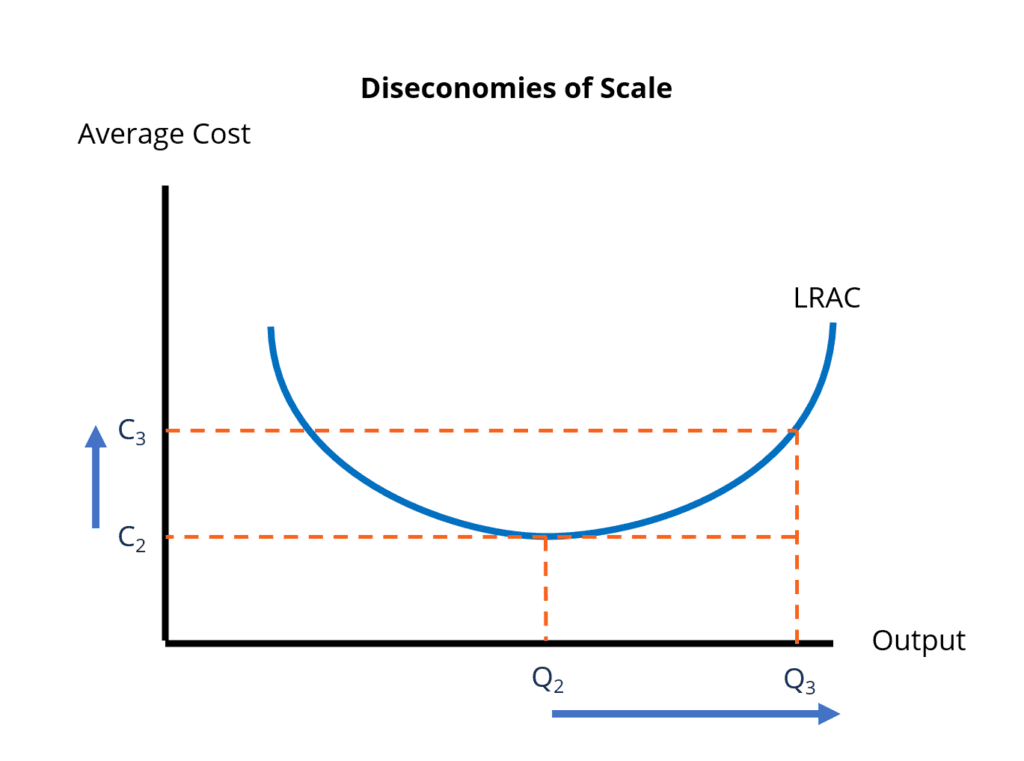Thủ Thuật Hướng dẫn Companies can achieve economies of scale in production by expanding into international markets 2022
Cao Ngọc đang tìm kiếm từ khóa Companies can achieve economies of scale in production by expanding into international markets được Cập Nhật vào lúc : 2022-08-22 19:42:03 . Với phương châm chia sẻ Thủ Thuật về trong nội dung bài viết một cách Chi Tiết 2022. Nếu sau khi đọc nội dung bài viết vẫn ko hiểu thì hoàn toàn có thể lại Comments ở cuối bài để Ad lý giải và hướng dẫn lại nha.Cost benefits from higher output levels
Nội dung chính- What are Economies of Scale?Key HighlightsEffects of Economies of Scale on Production CostsTypes of Economies of ScaleSources of Economies of ScaleDiseconomies of ScaleVideo Explanation of
Economies of ScaleAdditional ResourcesHow can a company achieve economies of scale?How are economies of scale achieved in international trade?What are the benefits of economies of scale to global market?How do economies of scale give rise to international trade quizlet?
What are Economies of Scale?
Economies of scale refer to the cost advantage experienced by a firm when it increases its level of output. The advantage arises due to the inverse relationship between the per-unit fixed cost and the quantity produced. The greater the quantity of output produced, the lower the per-unit fixed cost.
Economies of scale also result in a fall in average variable costs (average non-fixed costs) with an increase in output. This is brought about by operational efficiencies and synergies as a result of an increase in the scale of production.
Economies of scale can be realized by a firm any stage of the production process. In this case, production refers to the economic concept of production and involves all activities related to the commodity, not involving the final buyer.
Thus, a business can decide to implement economies of scale in its marketing division by hiring a large number of marketing professionals. A business can also adopt the same in its input sourcing division by moving from human labor to machine labor.

Key Highlights
- Economies of scale happen when an increase in output quantity reduces the per unit total cost of production.Economies
of scale occur from operational efficiencies that improve with increased scale of production.Economies of scale can occur from various sources, including purchasing in bulk, improvement in management quality, and improvements or utilization of technologies that increase efficiency.
Effects of Economies of Scale on Production Costs
It reduces the per-unit fixed cost. As a result of increased production, the fixed cost gets spread over more output than before.It reduces per-unit variable costs. This occurs as the expanded scale of production increases the efficiency of the production process.
Image: CFI’s Financial Analysis Courses
The graph above plots the long-run average costs (LRAC) faced by a firm against its level of output. When the firm expands its output from Q1 to Q2, its average cost falls from C1 to C2. Thus, the firm can be said to experience economies of scale up to output level Q2.
In economics, a key result that emerges from the analysis of the production process is that a profit-maximizing firm always produces that level of output which results in the lowest average cost per unit of output.
Types of Economies of Scale
1. Internal Economies of ScaleThis refers to economies that are unique to a firm. For instance, a firm may hold a patent over a mass production machine, which allows it to lower its average cost of production more than other firms in the industry.
2. External Economies of ScaleThese refer to economies of scale enjoyed by an entire industry. For instance, suppose the government wants to increase steel production. In order to do so, the government announces that all steel producers who employ more than 10,000 workers will be given a 20% tax break.
Thus, firms employing less than 10,000 workers can potentially lower their average cost of production by employing more workers. This is an example of an external economy of scale – one that affects an entire industry or sector of the economy.
Sources of Economies of Scale
1. PurchasingFirms might be able to lower average costs by buying the inputs required for the production process in bulk or from special wholesalers. By negotiating with suppliers for volume discounts, the purchasing firm takes advantage of economies of scale.
2. ManagerialFirms might be able to lower average costs by improving the management structure within the firm. The firm might hire better skilled or more experienced managers.
3. TechnologicalA technological advancement might drastically change the production process. For instance, fracking completely changed the oil industry a few years ago. However, only large oil firms that could afford to invest in expensive fracking equipment could take advantage of the new technology.
Diseconomies of Scale

Image: CFI’s Financial Analysis Courses
Consider the graph shown above. Any increase in output beyond Q2 leads to a rise in average costs. This is an example of diseconomies of scale – a rise in average costs due to an increase in the scale of production.
As firms get larger, they grow in complexity. Such firms need to balance the economies of scale against the diseconomies of scale. For instance, a firm might be able to implement certain economies of scale in its marketing division if it increased output. However, increasing output might result in diseconomies of scale in the firm’s management division.
Frederick Herzberg, a distinguished professor of management, suggested a reason why companies should not blindly target economies of scale:
“Numbers numb our feelings for what is being counted and lead to adoration of the economies of scale. Passion is in feeling the quality of experience, not in trying to measure it.”
Video Explanation of Economies of Scale
Watch this short video to quickly understand the main concepts covered in this guide, including the definition of economies of scale, effects of EOS on production costs, and types of EOS.
[embed]https://www.youtube.com/watch?v=eBcfViUhJks[/embed]
Additional Resources
Thank you for reading CFI’s guide on Economies of Scale. To keep learning and advancing your career, the following resources will be helpful:
- Market EconomyConsumer Surplus FormulaInelastic DemandLaw of Supply
How can a company achieve economies of scale?
You can achieve managerial economies of scale by investing in expertise as your organization grows. Specialist managers who oversee and improve production systems can streamline processes and increase productivity, resulting in lower average unit costs and economies of scale.How are economies of scale achieved in international trade?
Economies of scale in production means that production a larger scale (more output) can be achieved a lower cost (i.e., with economies or savings). A simple way to formalize this is to assume that the unit labor requirement in the production of a good is a function of the level of output produced.What are the benefits of economies of scale to global market?
Increased profits – Economies of scale lead to increased profits, generating a higher return on capital investment and providing businesses with the platform to grow. Larger business scale – As a business grows in size, it solidifies and becomes less vulnerable to external threats, such as hostile takeover bids.How do economies of scale give rise to international trade quizlet?
How do economies of scale give rise to international trade? International trade occurs because it increases the market size. increasing returns to scale. fall as the industry grows larger but rise as the representative firm grows larger. Tải thêm tài liệu liên quan đến nội dung bài viết Companies can achieve economies of scale in production by expanding into international markets